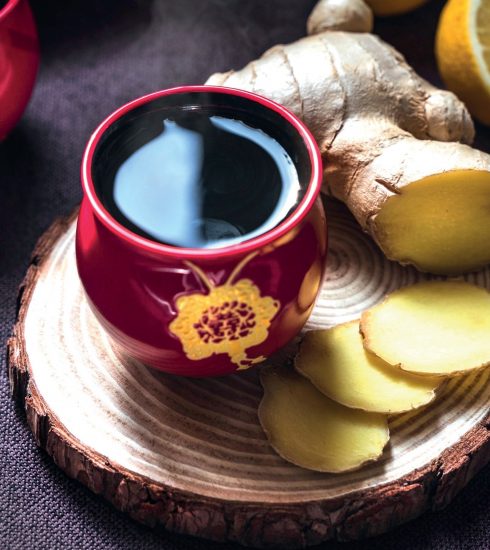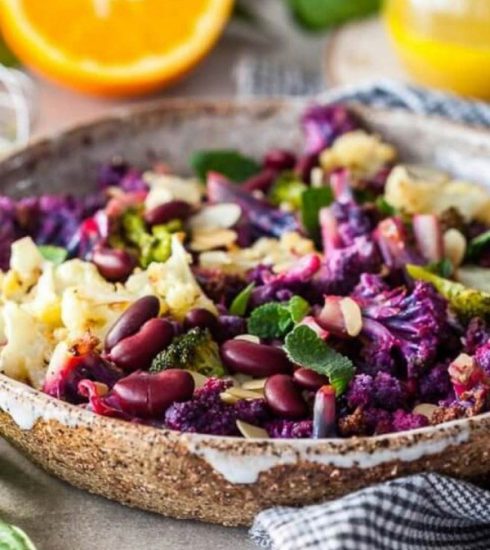Sallah Meat: 4 Different Ways To Prepare Your Meat
It is that time of the year again when Nigerians are collectively happy for the same cause. It doesn’t even matter what you believe in, the Eid el-Kabir celebration is one that generally brings good tidings amongst Nigerians. For Muslims, it is a time to make merry, an occasion that requires them to sacrifice an animal, usually a ram, cow, or camel, to commemorate Prophet Abraham’s great act of genuine submission to the will of God. For Christians, the idea of having two days off during the weekday sounds like temporary heaven. A common denominator, however, is the savoury expectation of meat. This Sallah, you can prepare your ram or cow meat differently. Here are four ways to thrill your guests with this year’s Sallah meat.
• Peppered Fried Meat
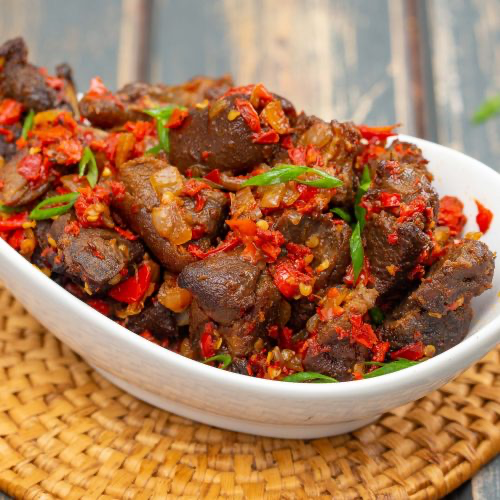
COOKING TIME: 1 hour 20 minutes
Popularly known as asun, peppered fried meat is one of the most loved snacks in Nigeria.
INGREDIENTS
• Ram meat
• Red Bell Peppers/Tatashe or Shombo
• Green peppers
• Black pepper
• Onions
• Scotch Bonnet (Atarodo)
• Vegetable Oil
• Seasoning Cubes
• Beef seasoning of your choice
• Curry
• Thyme
• Ginger
• Garlic cloves Minced
• Salt to taste
DIRECTIONS
Begin by thoroughly washing the meat, then proceed to boil it for approximately 20-30 minutes. Add salt, thyme, seasoning cubes, beef seasoning, onions, and black pepper to enhance the flavours. Meanwhile, chop the peppers or lightly blend them. Once the meat is boiled, immerse it in hot oil and deep fry until it reaches a succulent state.
Heat some oil in another pan and sauté onions and garlic before introducing the pepper mixture.
Incorporate seasoning cubes, curry, and salt, adjusting them according to your desired taste. Finally, add the fried meat to the mixture and stir it well. Allow it to simmer over low-medium heat for 10-15 minutes.
• Barbecue (Grilled Ram Meat)
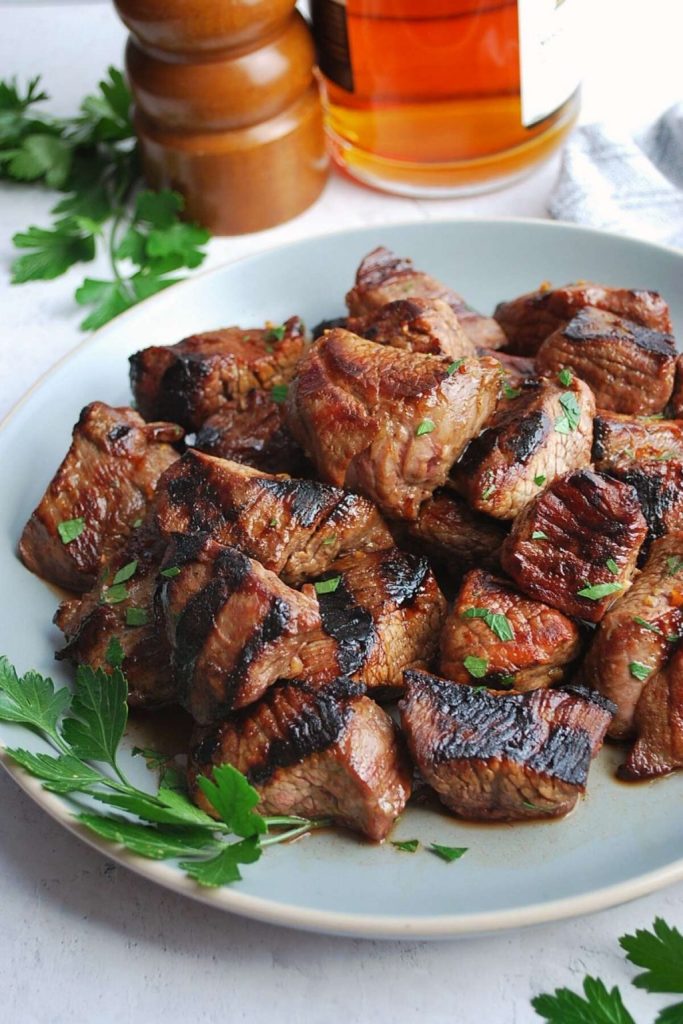
COOKING TIME: 1 hour 10 minutes
Grilling meat is a nutritious method of preparation. It entails marinating the meat in flavorful ingredients, slicing it thinly, and placing it directly on high heat. Grilling effectively removes excess fat from the meat, resulting in a healthier dish. To add an extra touch of excitement, you can also opt to skewer the meat and create delicious kebabs.
INGREDIENTS
• Ram meat
• Barbecue sauce
• Yaji (suya pepper)
• Honey
• Minced garlic
• Dry ginger powder
• Dry/fresh rosemary
• Paprika
• Cayenne pepper
• Stock cubes
• Salt to taste
DIRECTIONS
Once you have marinated your meat in foil for 30-45 minutes, carefully position it on the grill while still wrapped in the foil. Allow it to cook for approximately 15 minutes. Subsequently, unwrap the foil and generously apply additional marinade onto the meat. Place it directly on the grill once again, cooking for an additional 10 minutes on each side.
• Assorted Meat Peppersoup
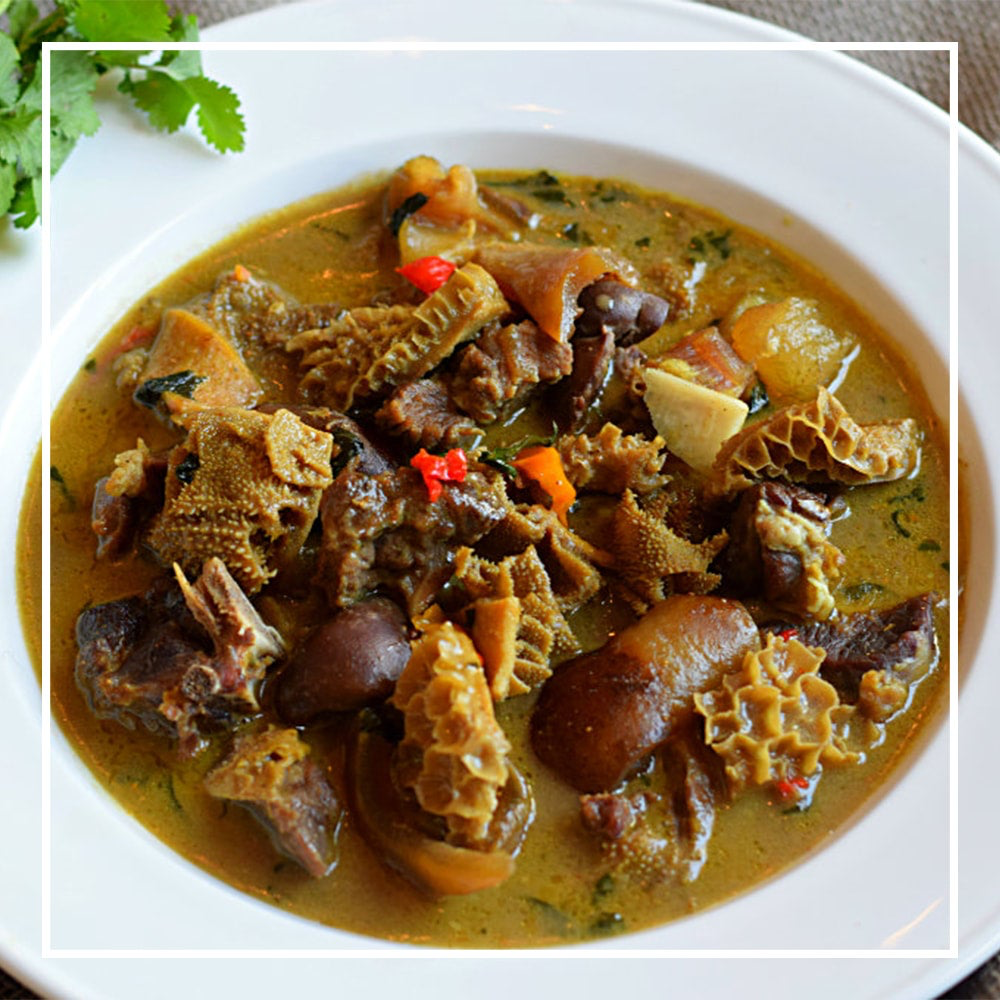
COOKING TIME: 30-40 minutes
Pepper soup is a delicacy that indicates celebration in Nigeria. Utilize the ram head and legs to prepare a flavorful peppersoup.
Begin by scraping and thoroughly washing the ram head, then proceed to cut it into essential pieces.
INGREDIENTS
• 500 – 700g of assorted meats comprising: Goat meat, Beef, Saki, Pomo, Kidney, Liver, Heart, Lung and Cow leg
• Ginger
• Lamb
• Fresh or dried scent leaf/nchawu
• Fresh Basil
• 2 or more cooking spoons of ground pepper soup spices
• 2 Red onions (chopped)
• 5 – 7 pieces of Ata rodo (pepper)
• 2 tablespoons of vegetable oil
DIRECTIONS
Cut all the meats into bitesized pieces and separate the offals into a different pot. Blend all the ata rodo (scotch bonnet/habanero), onions and ginger, then add to the pot. In the pot containing the offals, chop half of the red onion and add to the pot. Then, add salt and seasoning cubes.
Let this boil under high heat till the offals are cooked.
Once the offals are cooked, pour the contents into a sieve to drain off the stock. Check on the meats, which should be boiling at this time. Add the offals into the pot and allow to cook for 10 minutes. Then add more ground pepper.
Lower the heat and let it cook for another 10 – 15 minutes. This is to allow the meats to season properly.
While the pot is simmering on low heat, chop finely the handful of scent leaf and basil.
Then add the olive oil to the mixture to give the soup some sheen.
Once simmering is done, increase the heat and add hot water to the pot, stir, let it boil for 2 minutes and taste. If the spices are still too strong, add water again, wait for two minutes and taste.
Repeat this process until you get to a taste level that you like. Re-season with salt and seasoning cubes to taste. Add the chopped vegetables and stir to combine, till the vegetables turn a dark green colour.
• Dambu Nama
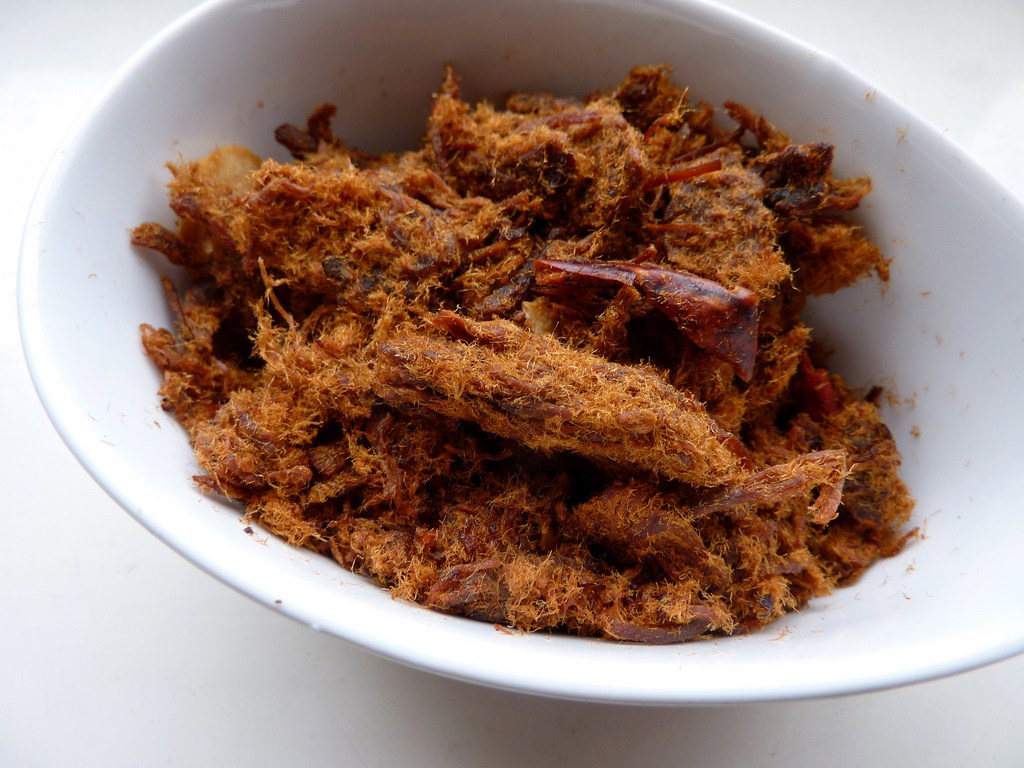
COOKING TIME: 30-40 minutes
Dambu nama is a delectable dried beef floss from Northern Nigeria that is peppery and savoury. The dried, shredded ram floss can be put inside bread, sprinkled over rice, or consumed as a snack. Additionally, it pairs well with masa. But planning takes a lot of time.
INGREDIENTS
• Ram meat
• Seasoning cubes
• Chilli powder
• Onion
• Garlic
• Yaji (suya spice)
• Vegetable oil
• Ginger powder
DIRECTIONS
Simmer the ram meat together with the spices and onions until it reaches a state of extreme tenderness, where it easily falls apart. Ensure that the flavour is perfectly balanced. Next, you have the option to shred the meat by continuously turning it, pounding it, or using a mallet or rolling pin on a chopping board. Once shredded, incorporate additional spices such as yaji, seasoning cubes, garlic, and ginger. Heat a generous amount of oil in a large pan and proceed to shallow fry the meat. It may be necessary to do this in multiple batches, and the frying process typically takes anywhere from 5 to 10 minutes. Achieving the ideal texture for the ‘dambu’ is of utmost importance.
When the oil is insufficiently heated, the shreds tend to absorb a significant amount, resulting in a greasy outcome. Conversely, if the oil is excessively hot, the meat will turn dry and crispy instead of being tender and chewy. It is advisable to experiment with a few small batches to determine the desired texture and flavour that suits your preference.
Self-identifies as a middle child between millennials and the gen Z, began writing as a 14 year-old. Born and raised in Lagos where he would go on to obtain a degree in the University of Lagos, he mainly draws inspiration from societal issues and the ills within. His "live and let live" mantra shapes his thought process as he writes about lifestyle from a place of empathy and emotional intelligence. When he is not writing, he is very invested in football and sociopolitical commentary on social media.




